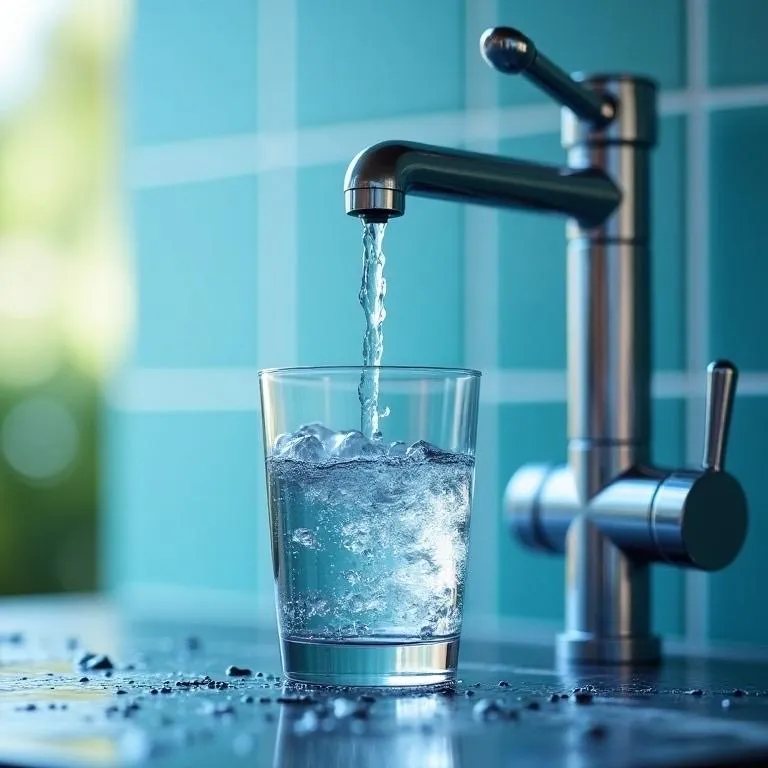
Self-Healing: Ditch the Plastic and Eat Happily
Self-Healing: Ditch the Plastic and Eat Happily
by Candace Kolter
There are a number of negative aspects to the plastics that plague us. Not only do they damage our environment, but they damage our health. However, they have become a convenience in our lives, so we have regularly overlooked these negatives, but things are changing. Some of the solutions we thought we had have turned out to be full of flaws.
For example, when I was a kid growing up in the big city about sixty years ago, we saw no problem in drinking tap water. We thought it was clean. No one gave a thought to the possibility of chemicals in the water or rusty plumbing. Nor were we concerned about aluminum drinking glasses which kept water super cold in the hot summer. We thought we were doing the healthy thing. We were surprised when we were told to buy bottled water or use a water filter. We were already paying for the tap water. Now we had to pay for something else?
As you may have noticed, over time, various types of pollutants that we thought were safe and convenient have turned out to be just the opposite. We now have beaches littered with plastics of all kinds and wildlife snagged by plastic "traps." We also are consuming a lot of microplastics which have continued unabated, even after we thought we had conquered the BPA in plastic bottles. The migration of these microplastics into people's brains is on the rise, and these microplastics can disrupt neurotransmitters, destroy brain cell membranes, and leave behind toxic damage that can lead to Alzheimer's, Parkinson's, and other brain diseases. This is definitely something for Neothinkers, who excel in creatively solving all kinds of puzzles, to avoid.
Microplastics have become a massive concern both environmentally and for human health…. [M]ost of the contamination in the environment is due to the incomplete breakdown of everyday products like water bottles, food containers, tires, etc. The result? Tiny plastic particles can now be found in our drinking water, food, and, ultimately, our body. —Dr. Wendy Myers
Generally, brain tissue attracts 10-20x more microplastics than any other organ in the body. What can you do to reduce exposure?
Avoid plastic water bottles and food containers and opt for stainless steel or glass. Do not use plastic dinnerware or utensils. Consider using stainless steel rather than plastic straws.
Invest in non-toxic clothing. (While it might sound strange, most of the clothing sold today contains embedded fibers woven with microplastics. When we launder these clothes, the fibers come loose and wind up in our water supply.)
Get a high-quality water filter or drink spring water that is delivered to your house in glass containers. (Spring water contains natural minerals.)
Never heat food in plastic containers. (This is especially common with delivery services from restaurants that put their food in plastic containers containing microplastics.)
Use an air filter in your home. (This will reduce the amount of microplastics you inhale and ultimately ingest into your body.)
Reduce consumption of processed foods. (Almost all processed foods are wrapped in plastic.) Even a stick of chewing gum can release 100-600 microplastics.
Use ceramic cookware. (This gives you the advantage of non-stick without exposure to microplastics. The average Teflon-style pan leaks microplastics into every meal even if it is brand new. A single scratch on a Teflon-style pan can release as many as 9,100 plastic particles into your food. For safety, look for ILAG, a Swiss quality coating for ceramic cookware.)
When possible, go back to the vintage practice of buying your meat wrapped in butcher paper rather than plastic, and buy your bread in paper bags rather than plastic. If you enjoy brewed tea, opt for loose leaves in a stainless-steel infuser. (Otherwise, you will be ingesting large amounts of microplastics from tea bags that release it when they are submerged in hot water.) Spices in plastic packaging are also contaminated with microplastics.
Ditch the plastic and eat happily!
This month, the Wordoku puzzle is HEALTHIER. As in Sudoku, each letter must appear in each row, in each column, and in each 9-square section. wordoku-puzzle-LONGEVITY.pdf
